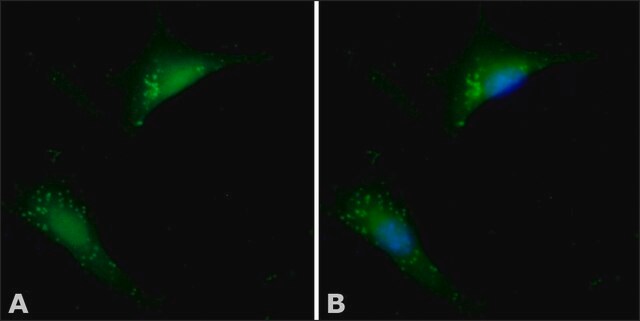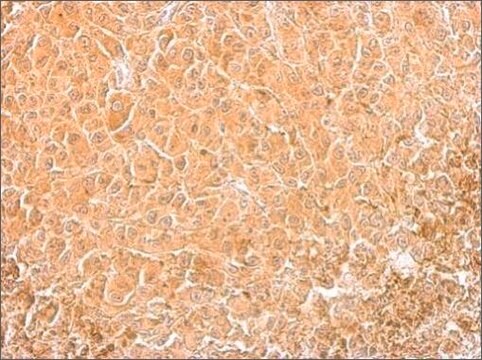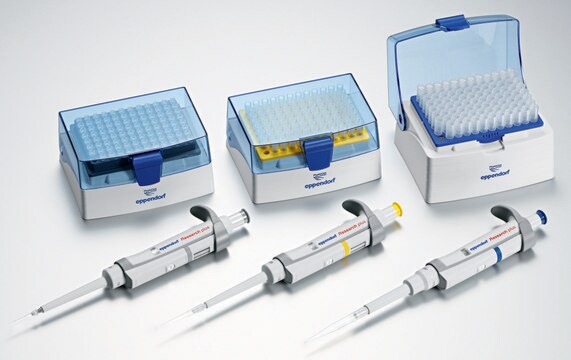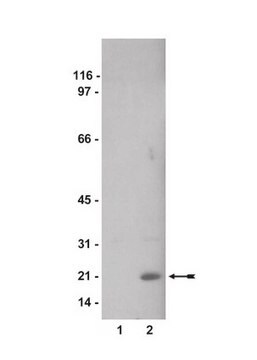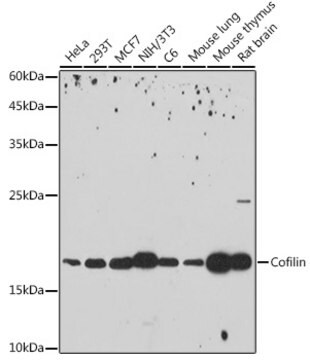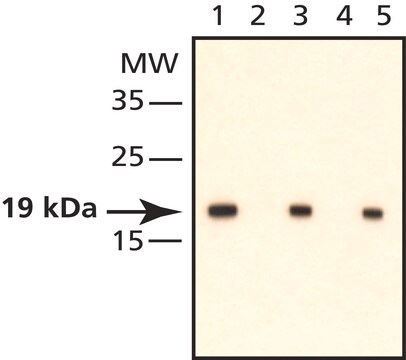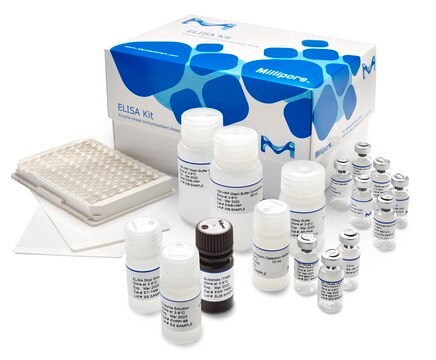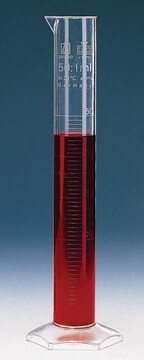ZRB1559
Anti-Cofilin-1 Antibody, clone 1C18 ZooMAb® Rabbit Monoclonal

recombinant, expressed in HEK 293 cells
About This Item
Polecane produkty
pochodzenie biologiczne
rabbit
Poziom jakości
rekombinowane
expressed in HEK 293 cells
białko sprzężone
unconjugated
forma przeciwciała
purified antibody
rodzaj przeciwciała
primary antibodies
klon
1C18, recombinant monoclonal
opis
recombinant, expressed in HEK 293 cells
linia produktu
ZooMAb® learn more
Postać
lyophilized
masa cząsteczkowa
calculated mol wt 18.50 kDa
observed mol wt ~18 kDa
oczyszczone przez
using Protein A
reaktywność gatunkowa
mouse, rat, human
reaktywność gatunkowa (przewidywana na podstawie homologii)
canine, bovine, feline
opakowanie
antibody small pack of 25 μL
charakterystyka ekologicznej alternatywy
Waste Prevention
Designing Safer Chemicals
Design for Energy Efficiency
Learn more about the Principles of Green Chemistry.
rozszerzona walidacja
recombinant expression
Learn more about Antibody Enhanced Validation
sustainability
Greener Alternative Product
metody
affinity binding assay: suitable
immunohistochemistry (formalin-fixed, paraffin-embedded sections): suitable
western blot: suitable
izotyp
IgG
sekwencja epitopowa
N-terminal
numer dostępu Protein ID
numer dostępu UniProt
kategoria ekologicznej alternatywy
, Aligned
Warunki transportu
ambient
temp. przechowywania
2-8°C
docelowa modyfikacja potranslacyjna
unmodified
Powiązane kategorie
Opis ogólny
Specyficzność
Immunogen
Zastosowanie
Evaluated by Western Blotting in MCF-7 cell lysate.
Western Blotting Analysis: A 1:1,000 dilution of this antibody detected Cofilin-1 in MCF-7 cell lysate.
Tested applications
Western Blotting Analysis: A 1:1,000 dilution from a representative lot detected Cofilin-1 in NIH3T3, PC12, and HEK293 cell lysates.
Affinity Binding Assay: A representative lot of this antibody bound Cofilin with a KD of 4.0 x 10-7 in an affinity binding assay.
Immunohistochemistry (Paraffin) Analysis: A 1:100 dilution from a representative lot detected Cofilin-1 in human tonsil tissue sections.
Note: Actual optimal working dilutions must be determined by end user as specimens, and experimental conditions may vary with the end user
Opis wartości docelowych
Postać fizyczna
Rekonstytucja
Przechowywanie i stabilność
Informacje prawne
Oświadczenie o zrzeczeniu się odpowiedzialności
Nie możesz znaleźć właściwego produktu?
Wypróbuj nasz Narzędzie selektora produktów.
Kod klasy składowania
13 - Non Combustible Solids
Klasa zagrożenia wodnego (WGK)
WGK 2
Temperatura zapłonu (°F)
Not applicable
Temperatura zapłonu (°C)
Not applicable
Certyfikaty analizy (CoA)
Poszukaj Certyfikaty analizy (CoA), wpisując numer partii/serii produktów. Numery serii i partii można znaleźć na etykiecie produktu po słowach „seria” lub „partia”.
Masz już ten produkt?
Dokumenty związane z niedawno zakupionymi produktami zostały zamieszczone w Bibliotece dokumentów.
Nasz zespół naukowców ma doświadczenie we wszystkich obszarach badań, w tym w naukach przyrodniczych, materiałoznawstwie, syntezie chemicznej, chromatografii, analityce i wielu innych dziedzinach.
Skontaktuj się z zespołem ds. pomocy technicznej